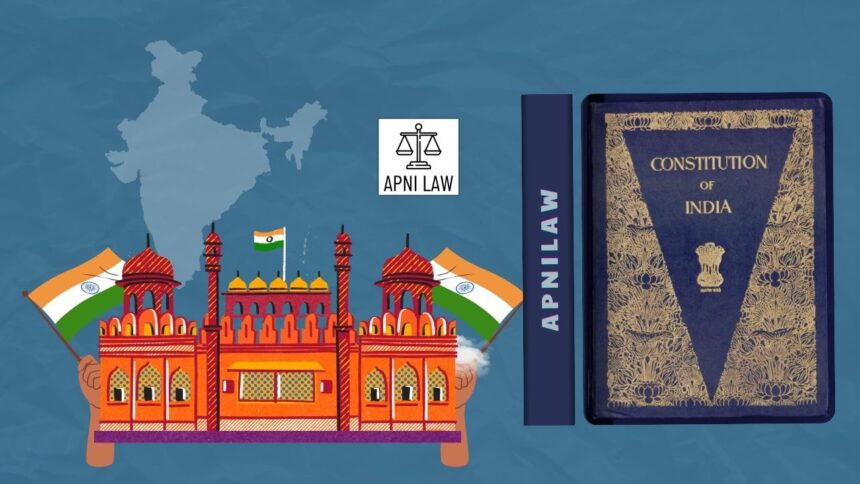Introduction
India’s Constitution ensures that both the Union and the States have enough funds to serve the people. To manage this balance, Article 280 provides for the creation of a Finance Commission. This body maintains financial harmony between the Centre and the States. It decides how tax revenue should be shared, ensuring fairness and cooperation in India’s federal system.
The Finance Commission acts like a bridge. It supports both national development and regional needs, helping India grow as a united yet diverse country.
Article 280: Constitutional Provision
Article 280 of the Indian Constitution directs the President to form a Finance Commission every five years or earlier if required. This ensures regular review and fair financial distribution.
The article clearly defines the Commission’s composition, powers, and functions. It aims to adjust revenue-sharing methods as economic conditions and national priorities change.
Composition of the Finance Commission
The Finance Commission includes a Chairperson and four members, all appointed by the President. Their qualifications are listed under the Finance Commission (Miscellaneous Provisions) Act, 1951.
The Chairperson is usually someone with strong experience in public finance or administration. Other members are experts in economics, law, and public policy. Their combined knowledge helps create balanced recommendations for national and state finances.
Functions of the Finance Commission
The Finance Commission’s main role is to recommend how taxes collected by the Centre should be shared with the States. This is known as revenue devolution. It also advises on grants, debt management, and measures to improve financial stability.
Under Article 280(3), the Commission’s duties include distributing the net proceeds of taxes, suggesting grants-in-aid, and reviewing the financial health of both levels of government.
Recent commissions have also looked into issues like disaster management funding and performance-based incentives. These responsibilities show how the Finance Commission’s role continues to evolve with the nation’s needs.
Importance in India’s Federal System
India’s federal structure relies on cooperation, not competition. The Finance Commission ensures this balance by distributing resources fairly. It reduces inequality and strengthens national unity.
Different states have different capacities. Some generate higher revenues, while others depend more on central transfers. The Commission ensures that even less-developed regions get fair support. This promotes inclusive growth and national stability.
Criteria for Revenue Sharing
The Finance Commission uses measurable criteria to decide how funds are shared. These include population, income levels, area, forest cover, and fiscal discipline.
For instance, the 15th Finance Commission (2020–25) used the 2011 Census data and gave weight to both performance and ecology. States that manage resources wisely or protect forests receive additional incentives. This method promotes both efficiency and environmental care.
Grants-in-Aid
Under Article 275, the Finance Commission recommends grants-in-aid to states needing extra support. These funds help states maintain essential services, develop infrastructure, and reduce inequality.
Grants are given based on needs, population, and fiscal performance. Some grants are specific, like for education and health, while others help cover budget shortfalls. By combining support with accountability, the Commission ensures responsible spending.
Evolution of the Finance Commission
Since 1951, India has seen 15 Finance Commissions, each adapting to new challenges. The First Commission focused on balancing state budgets after independence. Later commissions introduced concepts like fiscal discipline and transparency.
The Fifteenth Finance Commission, led by N.K. Singh, had to tackle issues such as the financial impact of the COVID-19 pandemic. Over the years, the Commission has evolved into a guiding force for economic justice and cooperation.
Challenges Faced by the Commission
The Finance Commission faces the tough task of balancing equity and efficiency. Richer states often feel penalized for their success, while poorer states rely heavily on central funds.
Another challenge is the overlap of financial powers between institutions like the NITI Aayog and the Finance Ministry. The changing use of population data, from 1971 to 2011, has also sparked debates over fairness.
Despite these issues, the Commission remains a trusted mechanism to uphold fiscal balance and national unity.
Role in Strengthening Cooperative Federalism
The Finance Commission reinforces the idea of cooperative federalism. It encourages both the Centre and the States to work together instead of competing for resources. Through dialogue, data, and fairness, it ensures that every state contributes to and benefits from India’s growth story.
By recommending balanced revenue sharing, it empowers states to plan development schemes independently. This builds trust and strengthens India’s federal democracy.
Frequently Asked Questions
1. What is the main purpose of the Finance Commission?
Its main purpose is to recommend how tax revenues are shared between the Centre and the States and to suggest grants for specific needs.
2. How often is the Finance Commission formed?
The President of India forms the Finance Commission every five years under Article 280 of the Constitution.
3. What challenges does the Finance Commission face?
The Commission faces issues such as balancing rich and poor states, avoiding overlap with other financial bodies, and dealing with changing economic conditions.
Conclusion
The Finance Commission of India, established under Article 280, ensures fairness in the sharing of resources. It keeps India’s fiscal structure strong and cooperative. Over time, it has evolved from a revenue-distribution body into a guardian of economic stability and equity.
Its contribution goes beyond numbers, it upholds the spirit of the Constitution by promoting justice, equality, and balanced growth. By constantly adapting to new realities, the Finance Commission remains the foundation of India’s fiscal federalism, keeping the nation united through financial harmony.







